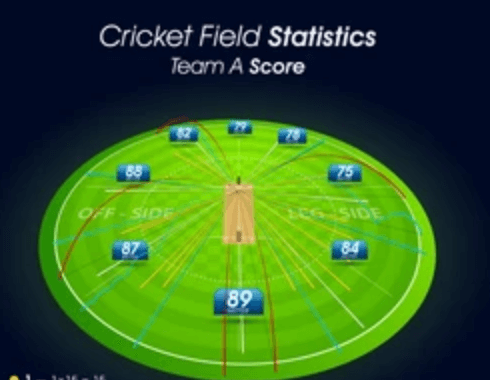- Home
- Live Score
- Schedule
- Achieve
- Teams
- Afghanistan Cricket Team
- Australia Cricket Team
- Bangladesh Cricket Team
- England Cricket Team
- India Cricket Team
- Ireland Cricket Team
- Namibia Cricket Team
- Nepal Cricket Team
- Netherlands Cricket Team
- New Zealand Cricket Team
- Oman Cricket Team
- Pakistan Cricket Team
- PNG Cricket Team
- Scotland Cricket Team
- South Africa Cricket Team
- Sri Lanka Cricket Team
- UAE Cricket Team
- USA Cricket Team
- West Indies Cricket Team
- Zimbabwe Cricket Team
- Series
- County Division One
- County Division Two
- England vs New Zealand [W]
- England vs Sri Lanka [U-19s]
- England vs West Indies
- India tour of Zimbabwe
- India vs South Africa [W]
- Indian Premier League 2024
- Ireland vs Zimbabwe
- Lankan Premier League
- Major Clubs OD [SLC]
- Major League Cricket 2024
- South Africa Women tour of India
- T20 Blast 2024
- Test Championship 2023-25
- The Hundred Mens Competition
- Vitality T20 Blast
- West Indies tour of England
- Women’s Championship
- Womens Asia Cup T20
- World Cup League 2
- Zimbabwe vs India
- Statistics
- Download App
- News
- Home
- Live Score
- Schedule
- Achieve
- Teams
- Afghanistan Cricket Team
- Australia Cricket Team
- Bangladesh Cricket Team
- England Cricket Team
- India Cricket Team
- Ireland Cricket Team
- Namibia Cricket Team
- Nepal Cricket Team
- Netherlands Cricket Team
- New Zealand Cricket Team
- Oman Cricket Team
- Pakistan Cricket Team
- PNG Cricket Team
- Scotland Cricket Team
- South Africa Cricket Team
- Sri Lanka Cricket Team
- UAE Cricket Team
- USA Cricket Team
- West Indies Cricket Team
- Zimbabwe Cricket Team
- Series
- County Division One
- County Division Two
- England vs New Zealand [W]
- England vs Sri Lanka [U-19s]
- England vs West Indies
- India tour of Zimbabwe
- India vs South Africa [W]
- Indian Premier League 2024
- Ireland vs Zimbabwe
- Lankan Premier League
- Major Clubs OD [SLC]
- Major League Cricket 2024
- South Africa Women tour of India
- T20 Blast 2024
- Test Championship 2023-25
- The Hundred Mens Competition
- Vitality T20 Blast
- West Indies tour of England
- Women’s Championship
- Womens Asia Cup T20
- World Cup League 2
- Zimbabwe vs India
- Statistics
- Download App
- News
+Cricket Statistics: Get the Latest Scores and Updates in One Platform
Cricket stats reveal how players, teams, and matches really stack up. Numbers like batting, bowling, and fielding stats unlock the game’s hidden secrets, showing which players steal the show and which strategies bring home the win. Fans and coaches dig into team and match stats to catch every twist and turn on the field. Knowing these numbers helps make smart calls and catch the game’s beat. Whether watching from the couch or calling moves from the sidelines, tracking these stats gives a serious edge in today’s exciting cricket battles. Keep reading to find out how these stats can transform how the game is watched and played.

Table of Contents
Toggle3 Reasons Why Cricket Statistics are Important
Pay attention to the explanation below regarding several reasons why cricket statistics are very important for you, namely
Performance Analysis
As a variation of statistics with objective measures of a player’s or team’s performance and analyzing data such as batting average, strikeout rate, bowling average, and economy rate, coaches and analysts can identify strengths and weaknesses. This helps in making informed decisions about player selection, training focus, and strategy adjustments.
Strategic Planning
These are detailed statistics that help teams design game plans and strategies. For example, knowing an opponent's scoring patterns, preferred shots, or bowling tendencies allows a team to plan field placements, bowling tactics, and batting order more effectively.
Fans and Commentators
Cricket fans and commentators rely heavily on statistics to understand the intricacies of the game. Statistics enhance the viewing experience by providing context to the action on the pitch, such as highlighting player form, comparing records, or identifying key achievements. Interacting with these numbers deepens fans' appreciation of the sport and stimulates discussion and debate, enriching cricket culture as a whole.
Types of Cricket Statistics We Cover
Below are various types of statistics on cricket matches that can be your recommendation, namely
Batting Statistics
Batting statistics is an important metric used to evaluate a batsman's performance in cricket. They provide insight into how well a player scores runs and contributes to the overall performance of the team.
Bowling Statistics
Bowling statistics are the main metrics used to evaluate a bowler's performance in cricket. These statistics provide insight into how effective a bowler is at taking wickets, controlling the flow of runs and contributing to the overall success of the team.
Fielding Statistics
Fielding statistics in cricket are metrics used to evaluate the performance of players on the field, except bowlers. These statistics provide insight into how effectively a player can catch, stop and bowl the ball to prevent runs and take wickets.
All-Rounder Statistics
All-rounder statistics in cricket is a metric used to evaluate the superior performance of players in terms of batting and bowling. These statistics provide insight into an all-rounder's overall contribution to a team's success.
3 Popular Statistics We Cover
There are 3 popular statistics that you can realize when a cricket match starts, namely
Player Performance Statistics
Able to evaluate a player's overall performance and contribution in various aspects of the game. These statistics provide detailed insight into how effectively a player is playing, helping to assess his impact on the team's success.
Team Performance Statistics
It is a metric used to evaluate the overall performance and effectiveness of a cricket team. These statistics provide insight into various aspects of a team's play, helping to assess their strengths, weaknesses and overall impact on the match.
Match and Series Statistics
Metrics used to evaluate team and player performance in individual matches and entire match series. These statistics provide detailed insight into how effectively teams and players play in specific matches and throughout a series, helping to assess overall impact and success.
3 Record-breaking Moments in Cricket Statistics
Below is a list of names of players with high records in cricket statistical calculations, namely
Brian Lara's 400 Not Out
West Indies batsman Brian Lara holds the record for the highest individual score in a Test match. In April 2004, Lara scored 400 unanswered runs against England in Antigua. This monumental innings broke his own previous record of 375 runs which he set in 1994, and remains the highest individual score in the history of Test cricket.
Sachin Tendulkar's 100 International Centuries
Sachin Tendulkar, the legendary Indian cricketer, is the only player in cricket history to have scored 100 international centuries. He achieved this incredible feat in March 2012 during the Asia Cup match against Bangladesh. Tendulkar's record includes 51 centuries in Test matches and 49 centuries in ODI matches, setting a benchmark that is considered one of the greatest achievements in cricket.
Muttiah Muralitharan's 800 Test Wickets
Sri Lankan spin bowler Muttiah Muralitharan is the leading wicket-taker in Test cricket, with 800 wickets to his name. He achieved this milestone in his last Test match in July 2010 against India. Muralitharan's record is a testament to his extraordinary skill and long-lasting endurance in the game, and the total of wickets he took remains unmatched in the history of Test cricket.
How Can You Make Use of Cricket Statistics?
You can use several methods below when relying on statistical cricket calculations, namely
Enhance Fantasy Cricket Gameplay
You should use detailed player statistics to make the right decisions while selecting players for your fantasy cricket team. Analyze trends and patterns to make predictions about match outcomes, player performance and other events.
Analyzing Opponents
You have to evaluate the strengths and weaknesses of players and teams by analyzing their batting, bowling and fielding statistics. This helps in understanding performance trends and areas that need improvement. Coaches and analysts use statistics to develop game strategies, such as determining batting order, fielding placement, and more.
Predicting Match Outcomes
Players can use predictions via each cricket team's performance data to identify areas for improvement, set training goals and track progress over time. Coaches can use statistics to guide young players, helping them understand their strengths and focus on areas that need development.
Conclusion
Cricketscore not only displays the results of cricket matches, but cricket statistics that can significantly change and provide solutions to various data and metrics used to evaluate the performance of players, teams and matches, namely batting statistics, bowling statistics, fielding statistics, team statistics, match statistics. All of these statistical variations are very important for analyzing player performance, making strategic decisions, and understanding game dynamics.
